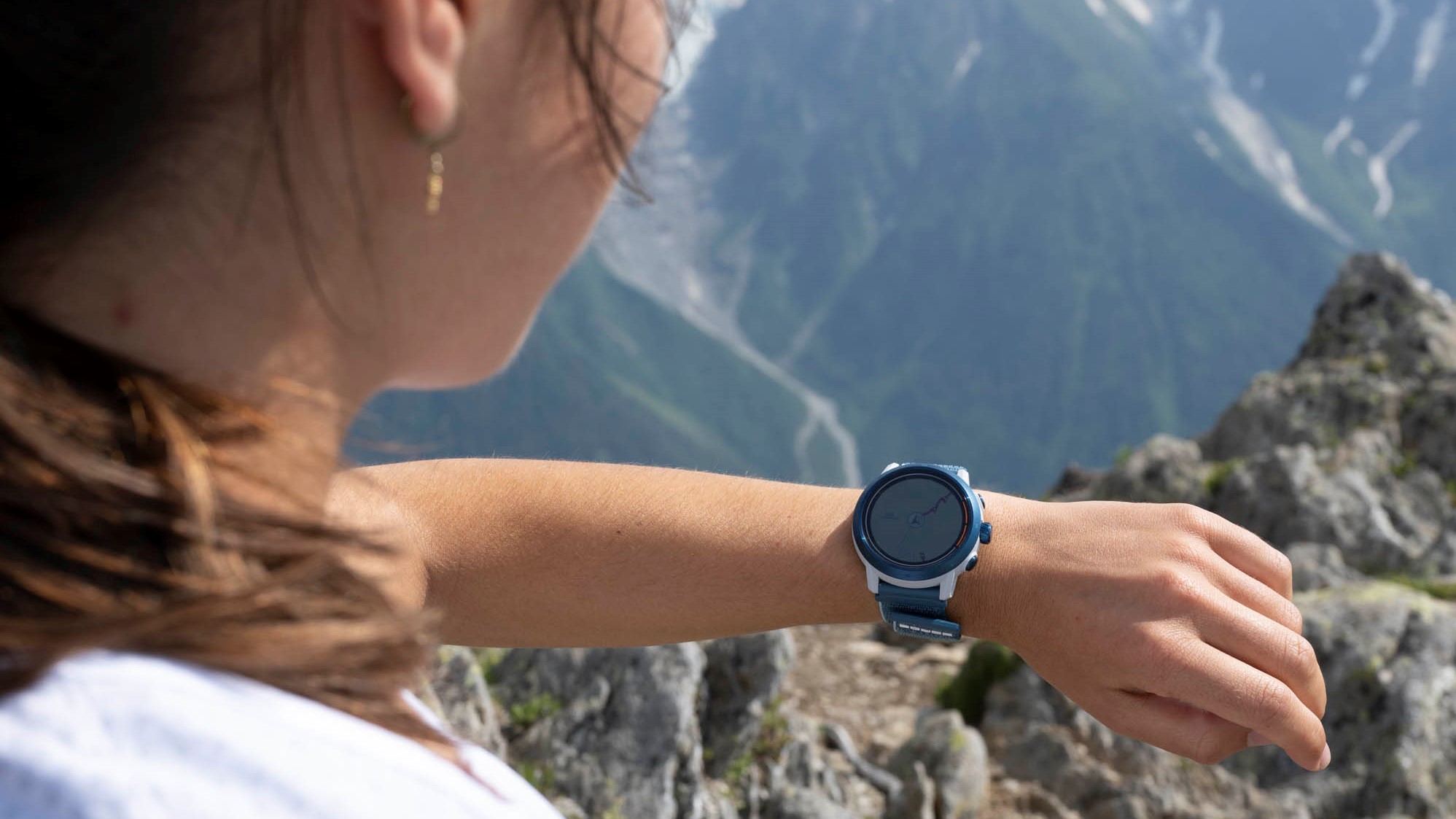
These days, GPS watches come with such a mind-boggling array of functions that it would be impossible to use them all in one lifetime, never mind understand what they all mean. Sometimes, however, it’s worth doing a little research to uncover what different modes and functions do, and when you might want to use them.
Take, for example, the Coros Apex 2 Pro and Coros Vertix 2. Both watches have built-in GPS, which is ideal for when you want to track your outdoor workouts. But as you’ve no doubt realized, while these watches can last for weeks without needing to be charged when you’re not using GPS, the moment you turn on GPS your battery starts draining much faster.
These two watches both have a function called Ultra-Max GPS mode that allows you to use GPS while preserving your battery, but that doesn’t necessarily mean you want to have it turned on all the time. Read on to discover what Ultra-Max GPS mode means on your COROS watch, and when you want to use it.

What is Ultra-Max GPS mode on your COROS watch?
When you’re using your GPS watch to track activities like hiking, running, cycling and even open water swimming, GPS mode becomes more important than if you’re just using it for working out at the gym.
On your watch, GPS mode helps you to actively track how far you went on your adventure, where you went and how long it took you to get there. This isn’t just a matter of keeping a personal record or for self-congratulations purposes; this information can in turn be used as a training tool to track your progress. It can motivate you by helping you to form goals for your next workout and of course, if you’re a little unsure on how to get back to the trailhead, you can use breadcrumbs to get you there.
On your Apex 2 Pro and Vertix 2, if you’re poking around in Satellite Systems Mode, you’ll notice that there are several GPS settings, one of which is called Ultra-Max. Basically, Ultra-Max GPS Mode is a battery-saving mode.
Your watch is probably set to Standard GPS Only, which takes one GPS reading per second to map out your adventure, and works well so long as you aren’t running under a dense tree canopy or rock roof that might impede GPS. If the sky is blocked, you might switch to All Systems On, which still takes one reading per second but uses two or three satellite navigational systems in addition to GPS, such as GLONASS, Galileo, Beidou and QZSS. This basically just increases your chances of accuracy when GPS might be limited.
When you switch your watch to Ultra-Max GPS mode, instead of taking a reading every second, GPS is switched on for 30 seconds out of every 120 seconds. In between those times, your watch uses motion sensors and algorithms to fill in the blanks and predict your pace and distance. Needless to say, this mode is going to be less accurate than either Standard GPS or All Systems On, but what it does is roughly double the battery life of your watch, which can come in handy in certain situations.

When should you turn on Ultra-Max GPS mode?
When you’re using your Apex 2 in GPS mode, you can expect about 75 hours from your battery while the Vertix 2 boasts around 140 hours with continuous use, so as you can see, Ultra-Max GPS mode isn’t necessarily useful for your average run, ride or hike.
Where it does come in useful is for multi-day adventures where you might have limited ability to charge your watch. That could mean a five-day fastpacking adventure where you don’t want to carry a solar charger, or a longer thru-hike lasting weeks or months. In these instances, you can sacrifice a little accuracy and switch to Ultra-Max to save the battery life on your watch.







